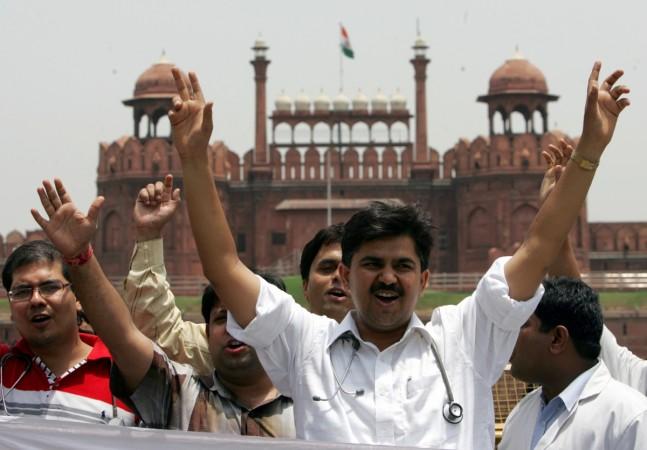
Even as the Indian government has approved the proposal to increase the retirement age of doctors employed with the central health services to 65 years, the doctors have said that they would continue their agitation for provisions of better security and allowances.
The union health ministry in an official statement on Tuesday said that Prime Minister Narendra Modi has approved the ministry's proposal, enhancing the age of superannuation of all doctors of the Central Health Service to 65 years with effect from May 31, 2016.
The ministry said that this move would enable retention of experienced doctors in service for longer period and provision of better healthcare in public health facilities across the country.
However, the recent decision of the government may not be enough to pacify the protesting doctors who are demanding an increase in their allowances under the 7th pay commission, and security.
A representative body of 15,000 resident doctors and 41 government hospitals based in Delhi called Federation of Resident Doctors Association (FORDA) has been protesting against the government since last week in the national capital.
The strike has crippled the healthcare services across government hospitals in Delhi and has also affected patient care.
The doctor's association had earlier written to PM Modi, demanding the revision of the 7th Pay Commission recommendations for the doctors. "The government provides us with a non-practice allowance that encourages doctors to enroll in government hospitals. Initially, the allowance given to us was 25 per cent. We were assured that the allowance would be raised to 40 per cent, but instead it was reduced to 20 per cent. Through these protests, we are demanding a revision of this commission and a raise in our allowances," a resident doctor was quoted by the Asian Age as saying.
Narayan Dabas, Convenor at FORDA, told India Medical Times that increasing the retirement age alone would not solve the problems of doctors.
"We welcome the government's decision to increase doctors' retirement age to 65 years. However, we need to understand that just increasing the retirement age of doctors alone will not solve all the problems of patients and doctors," he said.
He further said that some of the major reasons for poor public health services in India are the inadequate number of doctors and para-medical staff and lack of infrastructure.
Dabas added that despite the Union Public Services Commission referring 1,050 doctors for their appointment in central health services between 2009-2013, only 240 doctors joined the services.
He said that the inadequate allowances and increasing incidents of attacks on doctors have led to their dropout from the services.














